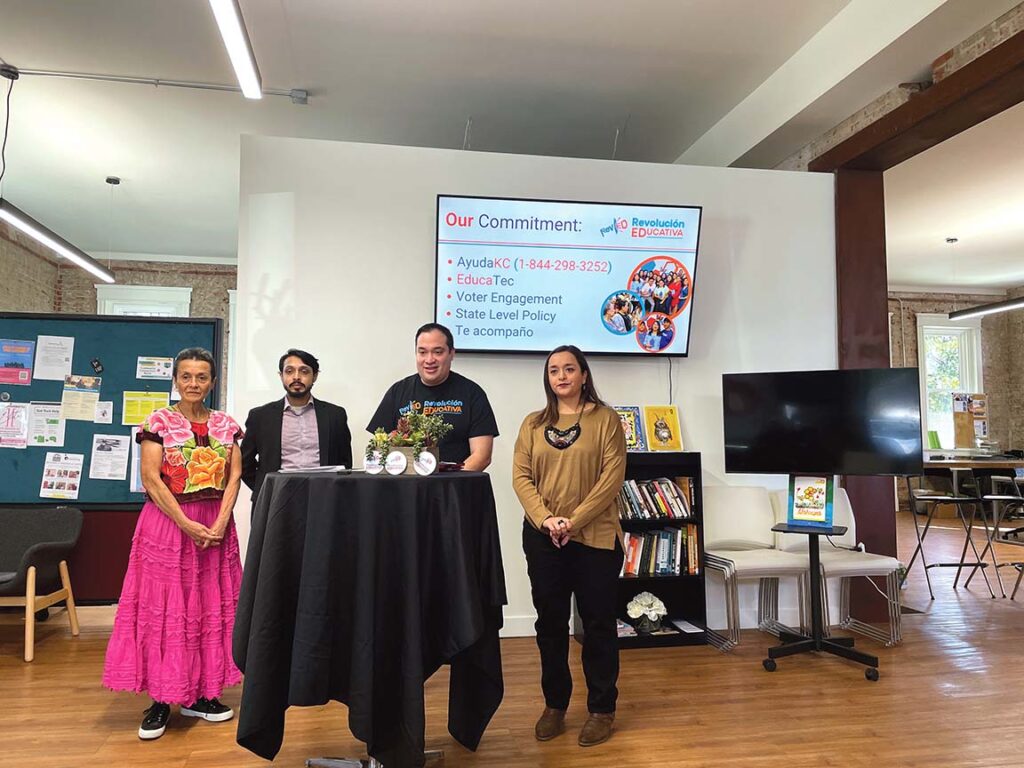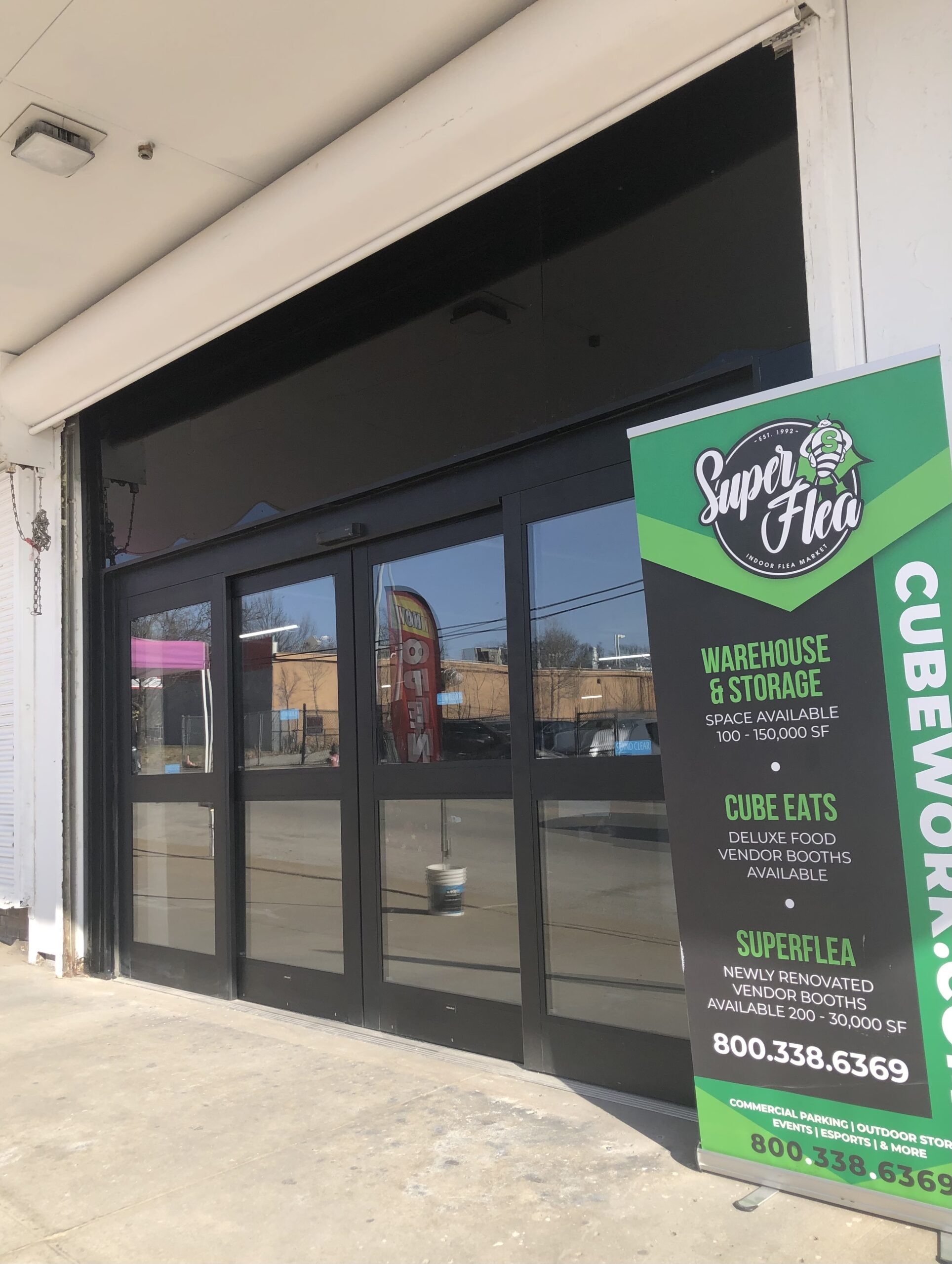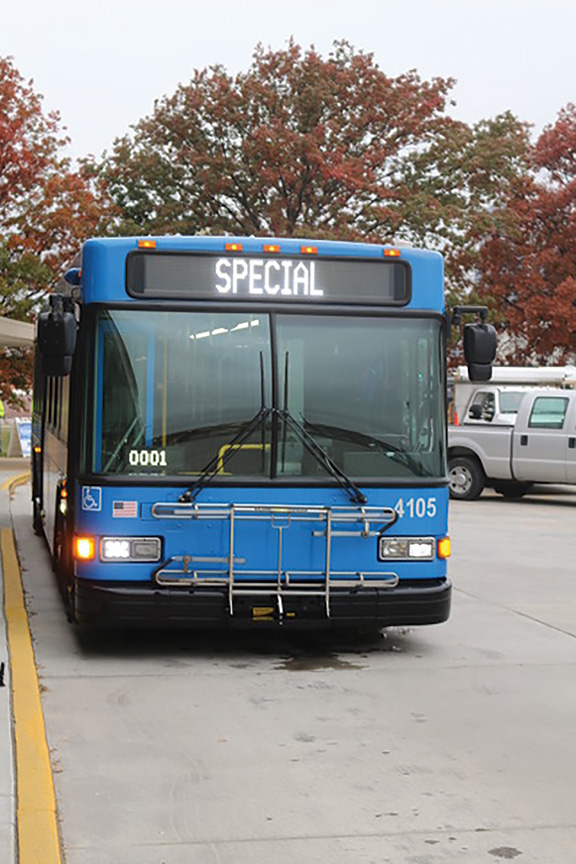
Abby Hoover
Managing Editor
Jerusalem Farm, a Pendleton Heights-based intentional Catholic community and service nonprofit recently completed the largest and most diverse survey of Northeast Kansas City residents in the community’s history.
The organization collected 589 surveys, translated into seven languages, both written and spoken. Dividing that up, 117 Hispanic residents completed the survey, 62 Black or African American, 262 white, 50 Asian, 12 American Indian or Alaskan Native, and 77 unspecified. The survey was taken predominately by women with 283, compared to 184 men and 5 non-binary.
“Who usually has the power to make the decisions in the neighborhood? For the things that people want to change and improve in the neighborhood, whose voices are normally heard?” asked Trinidad Raj Molina, survey coordinator with Jerusalem Farms. “This survey was an attempt to start pushing back against that so voices who are not normally heard can start to get represented.”
Jerusalem Farm prioritized hiring native language speakers as interpreters from the Historic Northeast so they would be familiar with the neighborhoods, have relationships to cultural groups, and would put money back into the community.
“We formed relationships with people to be involved in the process who could help bring in a very diverse representation of the community,” Molina said. “It was truly a representative survey all about relationships, often face-to-face, person-to-person; there was a mailer as well, but for the most part it was real relationships that brought in most of the results.”
On Thursday, October 27, Jerusalem Farm and Pendleton Heights-based education nonprofit Revolución Educativa (RevED) held a press conference to share newly released data from the survey, focusing on the Latino experience in the Northeast neighborhoods. More than 20% of respondents to the survey identified as Latino or Hispanic.
RevED launched in 2021, and has since been working on building power within the Latino community around issues of education.
“We exist because we believe in the power of representation, we exist because we understand that the demographics in this community, and in schools, across the country are becoming more Latino, and we want to make sure our voices are reflected and represented in positions of influence and decision making,” RevED founder Edgar Palacios said.
The nonprofits shared their plans to move forward, committed to supporting the Northeast KC community, its needs and desires.
“This is part of a collective impact approach,” Palacios said. “We cannot do this work by ourselves, and we have one very small slice of the pie, so I’m excited to see some friends and partners that we work with to make sure that our community is served well and that we’re all working toward the common goal of representation.”
According to the organizations, the survey outcomes provide clear guidance on how to better support neighbors by addressing aspirations and concerns and improving engagement with constituents across the Historic Northeast.
“This is collective community work, and we were hoping you could participate and become familiar with the results,” a release from the organizations read.
According to preliminary data, 71% of Hispanic or Latino residents have lived in their current neighborhood for over six years, while just 43% of all non-Hispanic respondents have lived in their neighborhood for over six years.
For all respondents, affordability was the most important reason to reside in the Northeast, followed overall by proximity to family or friends.
Hispanic residents – both homeowners and renters – are overall satisfied with their neighborhood, with 66% being satisfied and 19% being very satisfied. Fewer Hispanic residents are dissatisfied with living in Northeast at 13%, while 20% of non-Hispanic residents said they were dissatisfied or very dissatisfied.
Hispanic residents who responded to the survey saw Northeast as a good place to raise children, with 75% of respondents being satisfied or very satisfied, while only 60% of non-Hispanic residents chose those answers.
However, more Hispanic residents are concerned with the level of safety in the neighborhood, with 55% being dissatisfied or very dissatisfied, while 50% of non-Hispanic residents responded that way.
Among Hispanic respondents, 57% are satisfied or very satisfied with the availability of recreation programs at parks or community centers, naming public parks – specifically Maple Park and Concourse – and Whatsoever Community Center in Sheffield as community assets.
According to the Hispanic survey respondents, additional community assets include Mattie Rhodes and Northeast Alliance Together (NEAT), Samuel U. Rodgers Health Center, Jerusalem Farm, St. Anthony Parish, local restaurants like Yasmeen Cafe and taquerias, neighborhood associations and good neighbors, the Northeast Kansas City Chamber of Commerce, Our Lady of Peace Church, Center for Conflict Resolution, Masjid Al-Huda, Soma Retail, PH Coffee, Don Bosco Senior Center, help for the homeless and minor home repair programs.
Northeast residents largely get their information about recreational or community activities by word of mouth from their neighbors, followed closely by social media and The Northeast News.
According to one anonymous Hispanic resident, the City could be more responsive to the needs of Northeast, especially to fix intersections and put in roundabouts. Others asked for more activities for young people and children.
Hispanic residents are slightly less likely to own their home, with 66% renting, compared to 67% for non-Hispanic residents. However, among Hispanic homeowners, home repairs or maintenance issues are more likely to be an issue, with 59% saying they cannot afford to resolve them, compared to 43% of non-Hispanic homeowners.
Hispanic renters are also more likely to live with maintenance issues their landlord has not resolved at 44% of respondents, compared to 30% of non-Hispanic renters. Nearly half of Northeast tenants – 46% – have had a rent increase in the last three years. The median rent in Northeast was $816, according to the latest estimate from the U.S. Census Bureau.
Nearly 54% of Hispanic respondents said their current housing situation was unaffordable to some degree, while only 25% of non-Hispanic respondents said the same. Because they were struggling to pay rent or mortgage, Hispanic respondents were more likely to cut back on healthcare, take on more hours at work, stop saving for retirement, or take other actions to save money.
Trinidad Raj Molina, representing Jerusalem Farm, said the largest takeaway from the results of the survey, specifically for Hispanic residents, was that 89% of Hispanic renters would like to become homeowners within the next five years. Another 6% said yes, but not within the next five years. Compared to 61% of non-Hispanic renters within the next five years, and an additional 11% not within five years, those results will frame the way the two organizations will provide services to Hispanic renters.
“Homeownership often represents more sustainability in the neighborhood,” Molina said. “RevED here works a lot with education. For families, having a stable home often is what creates a good opportunity for our children in our neighborhood to have better educational outcomes. A lot of these things are interconnected issues.”
Jerusalem Farm is now working on a plan with the neighborhoods to create more opportunity for energy efficient housing that is affordable and aimed at long-term residents of Northeast who want to transition to become homeowners.
Among barriers for Hispanic renters to become homeowners, respondents noted largely no access to credit or not having enough savings for a down payment. Other barriers, in order of most to least selected, include unstable income, a lack of homes available, not knowing where to begin, and the inability to provide long-term home maintenance.
According to the survey, Hispanic residents are more open to the idea of a household composting program, with 68% in favor and 26% not sure. Right now, Hispanic residents are more likely to use two or three household trash bags per week than non-Hispanic residents.
At a higher rate than non-Hispanic residents, 52% of Hispanic residents said they feel good about the changes happening in their neighborhoods. Overall, residents of Northeast – 66% of Hispanic residents and 65% of non-Hispanic residents – are likely to recommend their neighborhood to a friend or family member as a place to live.
Hispanic residents agree at 73% that their neighborhood helps them be able to fulfill their needs, while 68% of non-Hispanic residents said the same. Hispanic residents also feel like they have a say about what goes on in their neighborhood, at 68%, while 55% of non-Hispanic residents felt the same way.
In a multicultural community like Northeast, Hispanic residents said if they were treated unfairly, it was because of the language or the way they speak at 32%, or their race at 28%, their cultural background at 15%, or their age at 10%. Non-Hispanic residents had similar experiences, but experienced unfair treatment more often because of their gender, religion, sexuality or disability.
Hispanic residents hope the future of Northeast includes an increase of safety, a decrease in homelessness, a decrease in litter and dumping, less drugs, affordable housing, better sidewalks, building trust and relationships, and more ownership by minorities and disenfranchised people. Another hope for the future for many Hispanic residents was access to citizenship for increased stability, with 62% of Hispanic residents born outside of the United States, compared to 23% of non-Hispanic respondents.
“We exist because there’s a lot of issues affecting the educational experience of Latino children,” said Christy Moreno, RevED Chief Community Advocacy and Impact Officer. “Latino children in the Kansas City metropolitan area are the fastest growing sub-group, demographic-wise. Unfortunately, there are a lot of barriers and a lot of obstacles that families and students experience that impact their educational experience, their educational outcomes, and we see increasingly that achievement gaps, instead of getting closer, are getting wider.”
Moreno said social determinants of health and social determinants of education are related and should be thought of together, as the solutions can be the result of collective impact between education advocates and other community groups.
There are currently 51,198 Latino students in the greater Kansas City metropolitan area. RevED has many avenues to families and teachers to get help. AyudaKC, a Spanish only hotline, is available for anyone to express concerns about educational-related issues at 1-844-298-3252. EducaTec, their newest program launching November 5, will focus on bridging the digital gap to allow parents to communicate with schools. They also help with voter engagement, advocate for state level policy and will accompany families to the school to advocate for their students with their program “Te Acompaño.”
The detailed results of the survey, while not available yet, will be provided to the community for use in other programs and neighborhood activities. More information on RevEd is available at revedkc.org, and more information about Jerusalem Farm is available at jerusalemfarm.org.



















